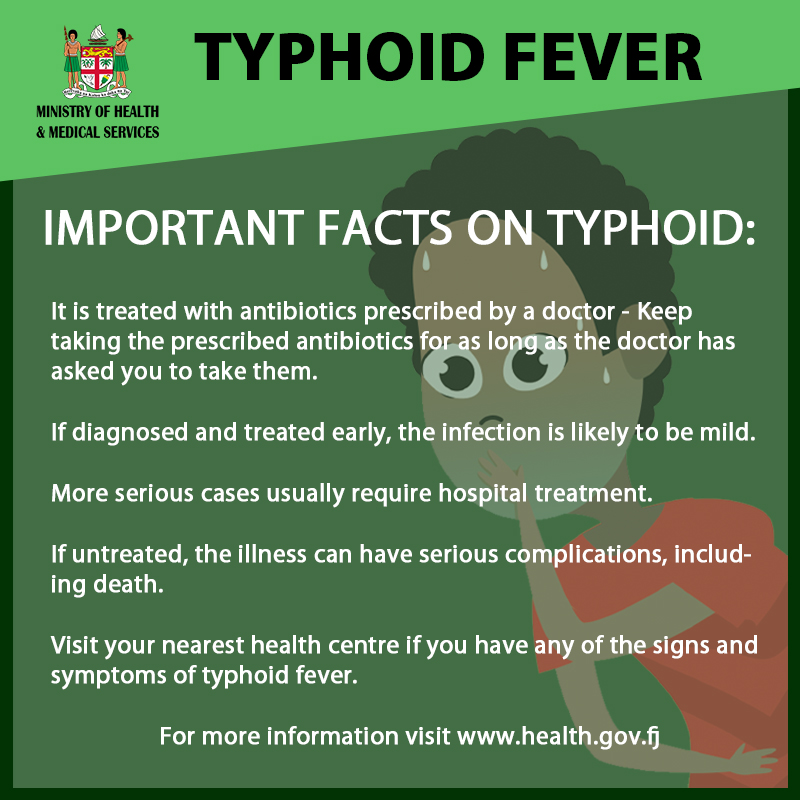The revelation that an outbreak of typhoid fever has been noted by the Ministry of Health in Macuata and Bua is a concern.
It has sparked a call for people in at-risk communities to avoid mass gatherings.
The ministry says there were six cases over the past three weeks in Nasuva Village, Seaqaqa, and three cases recorded just this week.
However, it said there had been no hospital admissions or deaths reported.
In Waikonadawa Settlement in Nasolo, Bua, it said, there were five cases in the past three weeks, with one case reported last week, and no cases reported so far this week.
There were three admissions and no deaths reported from Nasolo, it noted.
It is encouraging to know the ministry’s Northern Divisional team was now leading a whole of government approach, forming a taskforce to respond to the outbreaks.
It is also good to know that stakeholders are making every effort to control it, which is important.
The World Health Organization (WHO) lists typhoid fever as a life-threatening infection caused by the bacterium SalmonellaTyphi.
It is usually spread through contaminated food or water.
It says an estimated 11–20 million people get sick from typhoid and between 128,000 and 161,000 people die from it every year.
Symptoms include prolonged fever, fatigue, headache, nausea, abdominal pain, and constipation or diarrhoea.
Some patients may have a rash.
Severe cases may lead to serious complications or even death.
Typhoid fever can be treated with antibiotics although increasing resistance to different types of antibiotics is making treatment more complicated.
Typhoid fever, it said, is common in places with poor sanitation and a lack of safe drinking water.
We note that access to safe water and adequate sanitation, hygiene among food handlers and typhoid vaccination are all effective in preventing typhoid fever.
The WHO even made a number of recommendations for travellers.
This included the need to ensure food is properly cooked and still hot when served; Avoid raw milk and products made from raw milk.
Drink only pasteurised or boiled milk; Avoid ice unless it is made from safe water; When the safety of drinking water is questionable, boil it or if this is not possible, disinfect it with a reliable, slow-release disinfectant agent (usually available at pharmacies); Wash hands thoroughly and frequently using soap, in particular after contact with pets or farm animals, or after having been to the toilet; and wash fruits and vegetables carefully, particularly if they are eaten raw.
If possible, vegetables and fruits should be peeled.
We have a challenge to understand the causes and symptoms of typhoid and take appropriate action.
We have been warned!



